My psychosis brought me to the brink of suicide
updated on Feb 15, 2023
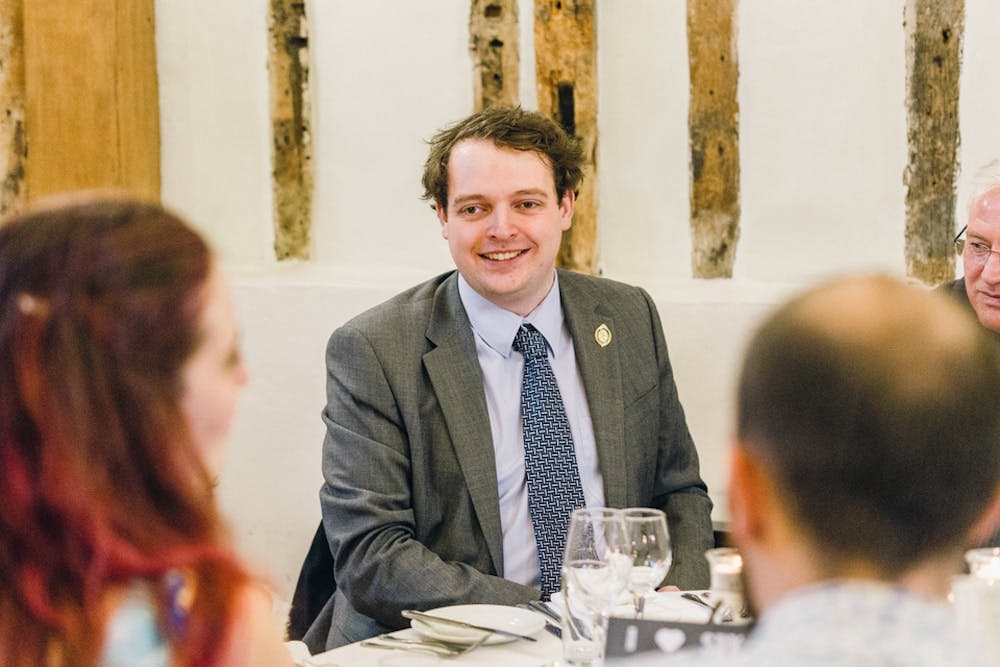
Politician Andrew Gordon experienced such terrifying psychosis that he almost ended his life. Instead, he won an election and now campaigns to improve mental health services for all
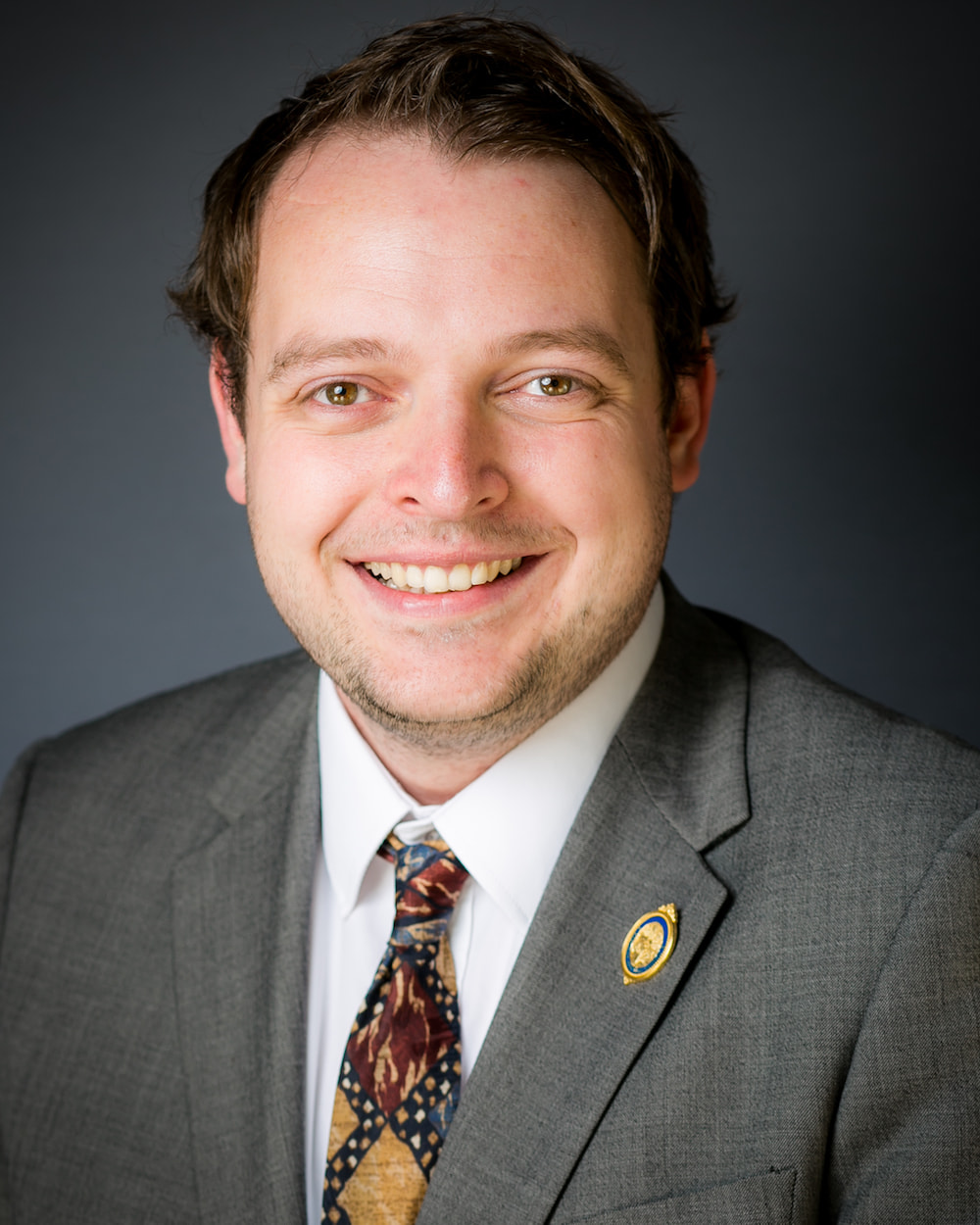
Andrew Gordon
People often say politics is “crazy” or “insane”. Some even say that politicians have completely lost contact with reality. I am a local politician in a town called Basildon, Essex, and I am proud to say I was diagnosed with a loss of contact with reality long before I ever became involved in politics. My journey from “psychosis to politics” is a long one, so it’s best to start at the beginning.
When I was 14, I became unwell and experienced my first episode of psychosis, which is a mental health condition that causes people to perceive or interpret things differently from those around them, and can involve hallucinations or delusions. People often ask me, “What caused it?” and I think the answer to that question is still challenging.
With mental illness, I would argue there is very rarely one single cause, but a multitude of factors that come together. I would also say that some people are simply more vulnerable to experiencing mental illness than others. I believe I fell into that category.
A number of significant life events, a few traumas and a complete lack of understanding of mental health caused my wellbeing to deteriorate significantly. I started to believe I was an ugly, fat, worthless cretin. My whole being was evil. I was scum and would amount to nothing.
"With mental illness, there is very rarely one single cause"
These hateful feelings and thoughts were powerful, and I had complete disdain for myself which, for a 14-year-old lad, is quite sad. At the time, I was also being bullied and I think I took the anger I had for the people who hurt me out on myself, both physically and emotionally.
They say sticks and stones may break your bones but words will never hurt you – I think that’s incredibly wrong. Words are very powerful, and it was words that I used to torture myself with. I broke myself down and my mind became so chaotic I would on occasion punch myself in the head or whip myself with a belt because that was less painful than what I was experiencing in my mind.
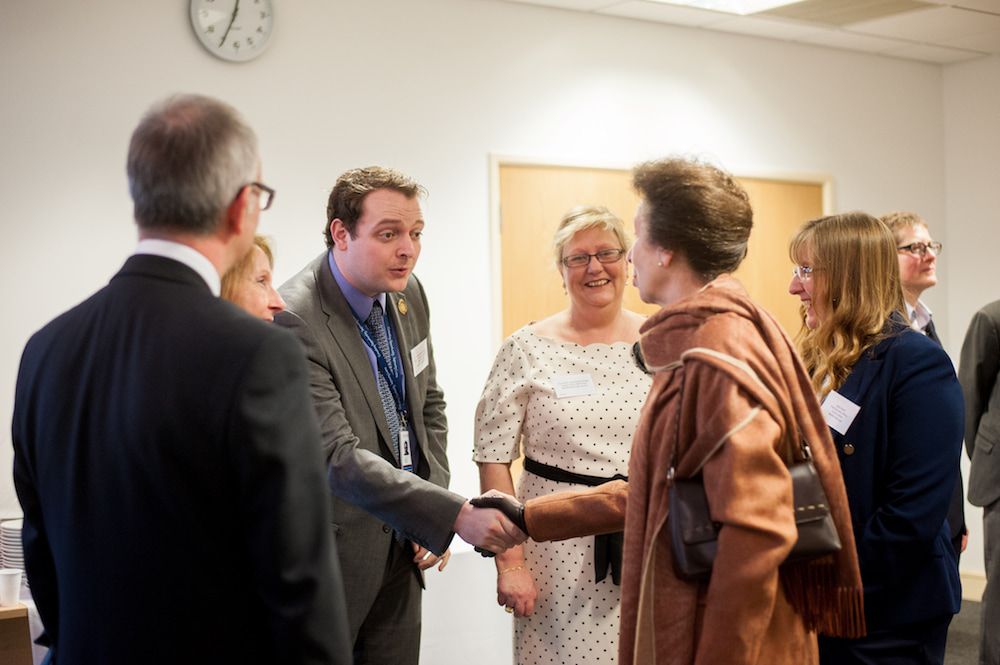
Andrew meeting the Princess Royal
Something had to give and unfortunately that something did; I convinced myself that Satan was going to come and kill me and I had to escape. I became more and more distressed and my mum had to lock me in a room while she tried to call for help – the sad reality being that there was nobody out there to help her or me because at the time there was not any out-of-hours crisis support for young people in mental distress.
I was so consumed by psychosis at this point that I jumped out a window, vaulted over my back garden fence and ran a considerable distance before I was taken home in the back of a police car. It’s not the only time I have ended up in the back of the police car, and I have a running joke with colleagues on Basildon Council that, out of all the councillors, I have been picked up the most by the police, not because I was a criminal, but because I was unwell.
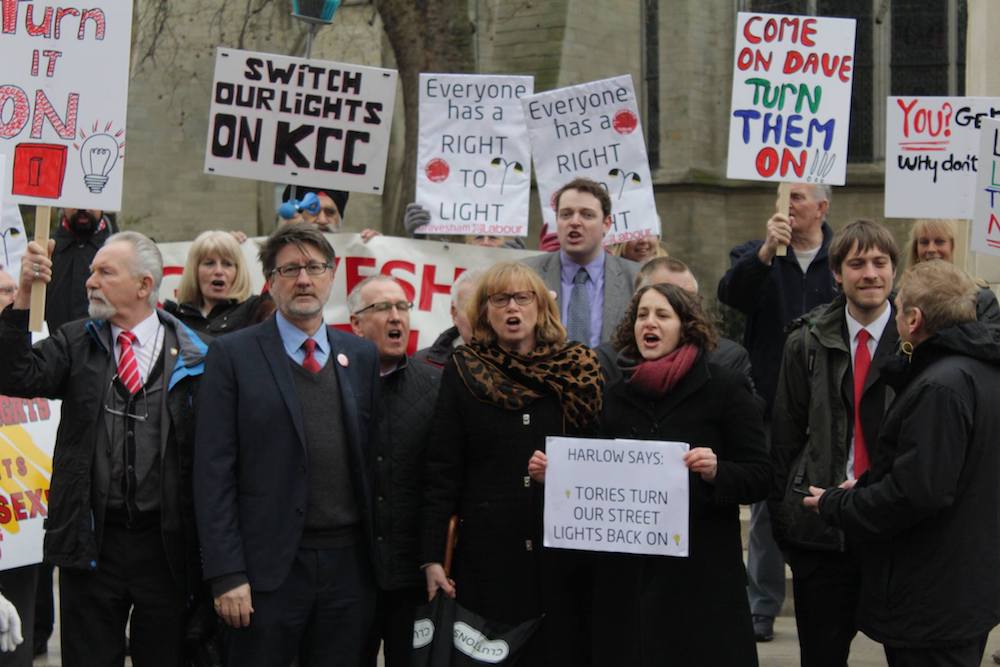
It’s an interesting reflection on mental healthcare I feel. Once the police brought me home, I then faced a Mental Health Act assessment which involved two consultant psychiatrists and a social worker deciding if I should be sectioned under the Mental Health Act. The conclusion was that if I agreed to the treatment plan (involving agreeing to be voluntarily admitted to an inpatient psychiatric unit) I would be demonstrating enough “insight” to not be sectioned.
At this point in time I had stopped attending school, had few friends, and felt psychotic, depressed, and was self-harming (and self-loathing), and about to be admitted to an inpatient psychiatric unit. However, looking back, it was actually a pivotal moment in my life. This moment was where I finally sought the help I so desperately needed, and I began a long journey through mental health services.
"My mind became a prison"
I spent a year in an inpatient psychiatric unit, where I underwent intensive therapeutic and medical interventions. It was a difficult place to be as a young person, and not the place I imagined finishing my GCSEs. I was also placed on a lot of medication, pumped full of Risperdal by an inter-muscular injection. The impact this had on me was quite profound. I put on an incredible amount of body mass. I started hyper-salivating, and I developed a twitch in my right leg.
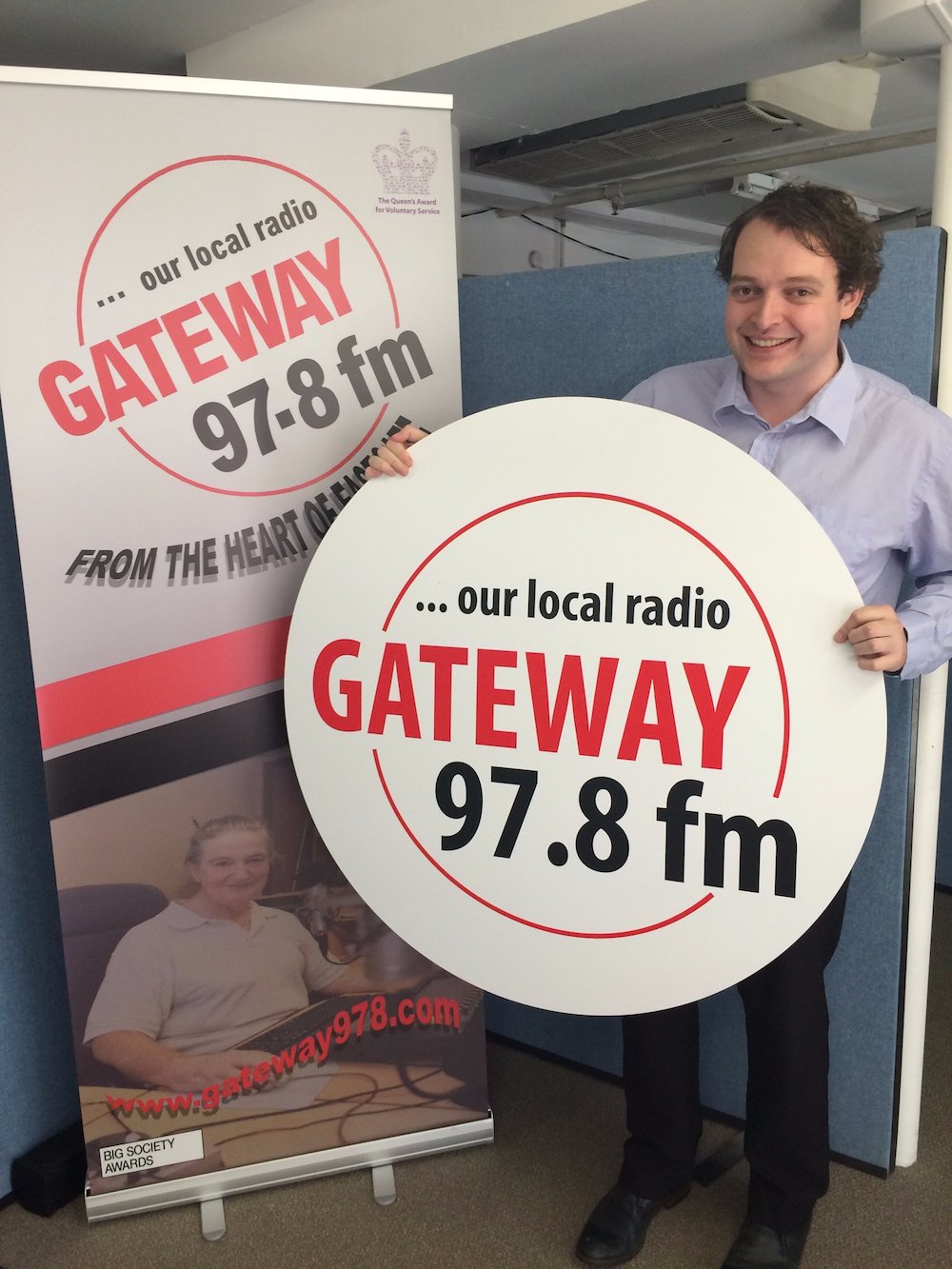
Spreading the word across the airways
But what the medication did do was stop the crippling and disturbing thoughts from consuming me, and it allowed me to start doing little things. Unfortunately, I was not allowed to complete my education so I never achieved any GCSEs, but I started volunteering on various projects and I built up my self-esteem.
I was eventually discharged into the big wide world at 17. I still had few friends and an active mental health condition. Slowly but surely, I built up my self-confidence. I was certainly getting out more and more but I would still be very vulnerable, and I still was in and out of hospital because of my illness. I struggled to find work but I felt I was heading in the right direction.
One event shaped the rest of my life. I received a letter saying that my social security would be stopped because I was not “unwell enough” – it was the straw that broke the camel’s back. I remember quite clearly shaking in a ball on the floor, crying, punching myself in the head to attempt to make the distressing thoughts go away. I convinced myself that death was the only answer to my problems. That night, I became so distressed that I put a wire around my neck and stood on a chair. My memory is a blank at this point. But clearly, I was not successful.
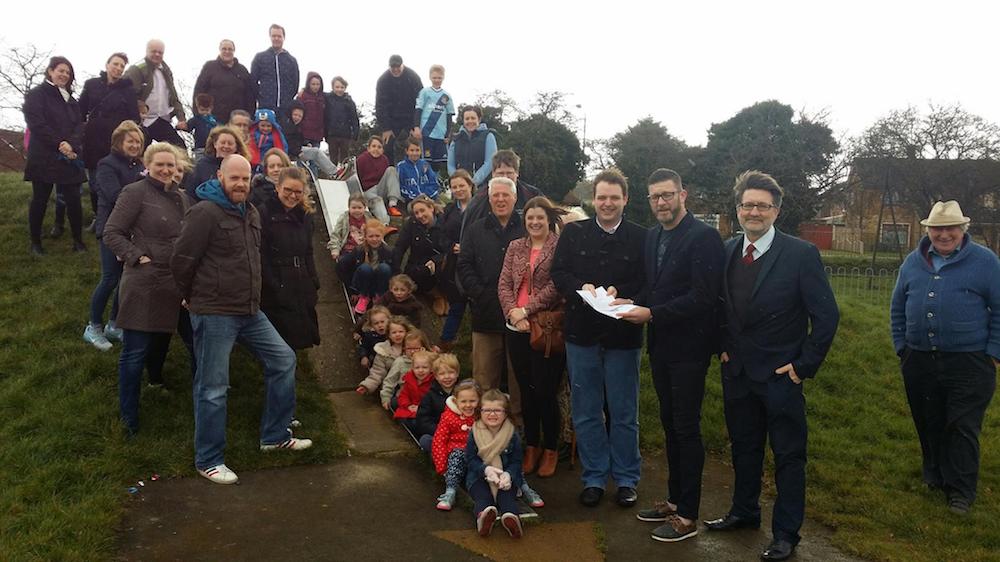
If I had killed myself, I would have been just another statistic, another inquest and another young man, lonely, isolated, jobless, and sad through no fault of his own. Suicide is not a selfish act. It is not an easy way out, but a human response to a horrific set of circumstances. Behind every statistic on suicide there will be a story. Thankfully, mine never ended at that point.
I turned my life around. I managed to start work, got some quality cations under my belt and took life head on. During this time, I also won an election and became a politician. I use my time in politics to fight for better mental health provision, both locally and nationally.
When I am working to improve mental health services I sometimes think about my journey, and I ask myself these “if only” questions:
• If only my school supported me, dealt with the bullying
correctly?
"Life is tough, it will keep kicking you until you force yourself to get back up"• If only I was able to see a mental health professional sooner?
• If only when I was in hospital, the education system helped me achieve my fullest potential, and helped me attain quali cations?
• If only when I turned 18 I was not completely abandoned by services?
• If only adult community mental health services worked more closely together, with a focus on building my social networks?
• If only the Jobcentre didn’t put me through a humiliating assessment and instead supported me into work?
• If only employers did not discriminate against people with mental health conditions?
• If only society realised that every single one of us has the ability to save someone from ending their life, by not being afraid to talk about mental health?
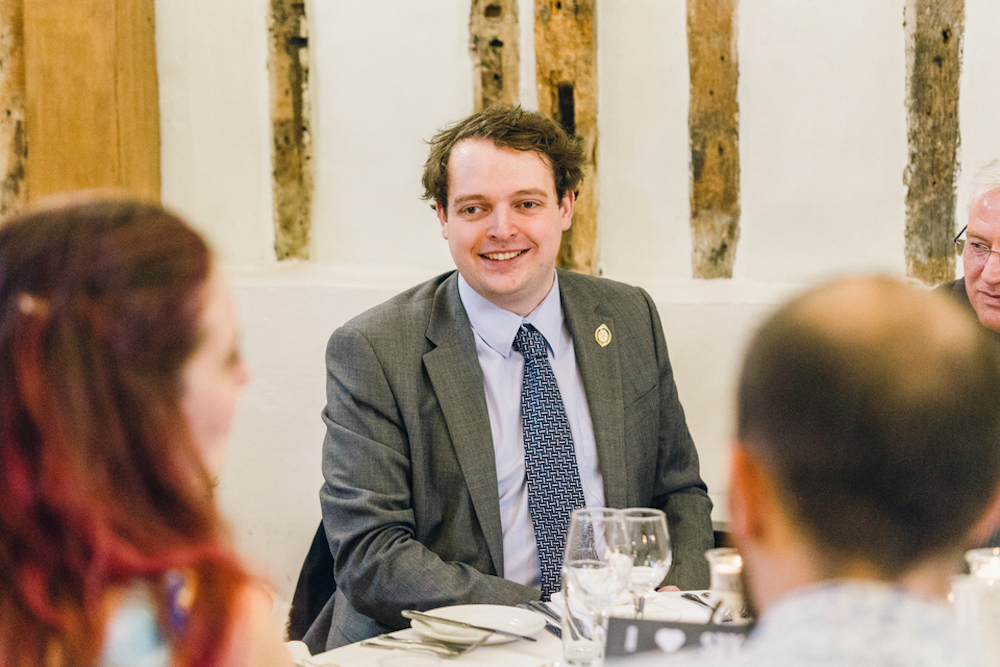
There are lots of “if only” questions in my journey, but I wouldn’t be the person I am today without those experiences. One thing that was always very important for me was using my experiences to make a positive difference. Life is tough, if it kicks you down, it will keep kicking you until you force yourself to get back up. It is relentless and has no mercy. But life also create characters that have an indomitable will.
People who have life, just keep going. The most powerful asset you can have is the ability to learn from the unfortunate experiences, and be able to come out and say: “Things were tough, but I kept going.”
“Andrew’s story is a humbling reminder that mental health is not just the responsibility of the person with the condition, or their family. It is an outcome of social and environmental factors, just as much as our genes or history, and it is a social responsibility for all agencies, and individuals, to contribute positively to. I hope we can learn systemically from stories like Andrew’s, and make sure we do not let people down in this way again.”

Join 100,000+ subscribers
Stay in the loop with everything Happiful
